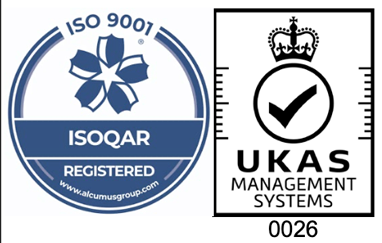An Essential Guide to Viton
9th November, 2021
Viton rubber is one of the most hard-wearing fluoroelastomers in the world and, as a result, is used in some of the harshest environments whereby chemical interactions and extreme temperatures are standard. The use of this material has been widely accepted by industry specialists for its impressive durability and performance. Find out more about Viton and whether you could use it for your business in this essential guide.
What is Viton?
Viton is a specialty fluoroelastomer in the FKM family that is a trademark of The Chemours Company FC, LLC. Based on the product application, a copolymer is chosen for the Viton rubber compound, with commonly used polymers including terpolymers of tetrafluoroethylene (TFE), hexafluoropropylene (HFP) and vinylidene fluoride (VDF or VF2), and hexafluoropropylene (HFP) as well as perfluoro methyl vinyl ether (PMVE). With a variety of grades of Viton, each with varying characteristics, it is important to understand the required application to ensure the correct grade is used.
What is Viton Used For?
Viton has a wide variety of applications, some of these uses include dynamic and high-performance seals, expansion joints, hoses and tubing, high voltage cables. Earning a reputation for withstanding extremely corrosive conditions and high temperatures, Viton is routinely used in the automotive, aerospace, consumer electronics, industrial machinery, chemical processing and oil and gas industries.
Advantages of Viton
- In comparison to other elastomers, Viton can maintain its shape, flexibility and seal when exposed to high temperatures, chemicals and ozone.
- Viton is also a durable material that will last over time, ensuring components operate with no downtime or mechanical breakdown.
- High durability and reliability results in higher performance and a competitive advantage for those using Viton.
- Can be used to enable products to survive the harshest environments.
- Meets strict FDA and sanitary standards.
Viton vs. Nitrile
Whilst Viton and Nitrile are both commonly used for industrial purposes, due to their versatile properties and applications. However, there are some key differences between the two, which can be seen below.
Nitrile Properties:
- Temperature: Nitrile is most effective between -30°C and 100°
- Environment: Nitrile has poor resistance to ozone, sunlight and weather degradation compared to Viton. However, it does have high abrasion and tear resistance.
- Chemicals: Resistant to hydrocarbons, oils, petrol, water and hydraulic fluids.
- Usage: Suitable for heavy-duty industrial applications, some examples include automotive, aircraft fuel systems and marine applications.
Viton Properties:
- Temperature: Can withstand temperatures from -20°C to 250°C, however, does not perform as well in lower temperatures.
- Environment: Unlike Nitrile, this material has high resistance to degradation from weather, UV, oxidation, ozone and mould.
- Chemicals: Resistant to petroleum oils, acids, silicone fluids and hydrocarbons.
- Usage: Well-suited to diverse jobs that require high resistance levels to extreme temperatures and chemicals, such as automotive, aircraft engines, chemical and appliance-processing industries.
Here at Aquaseal Rubber, we offer a range of products in Viton rubber, including sheeting, extrusions, cords, profiles, gaskets, joints, rubber seals, caulks and adhesives, food-grade rubber, sponge and foam, and hoses and tubes. To enquire about our products or to find out more about what we offer, contact us today.


